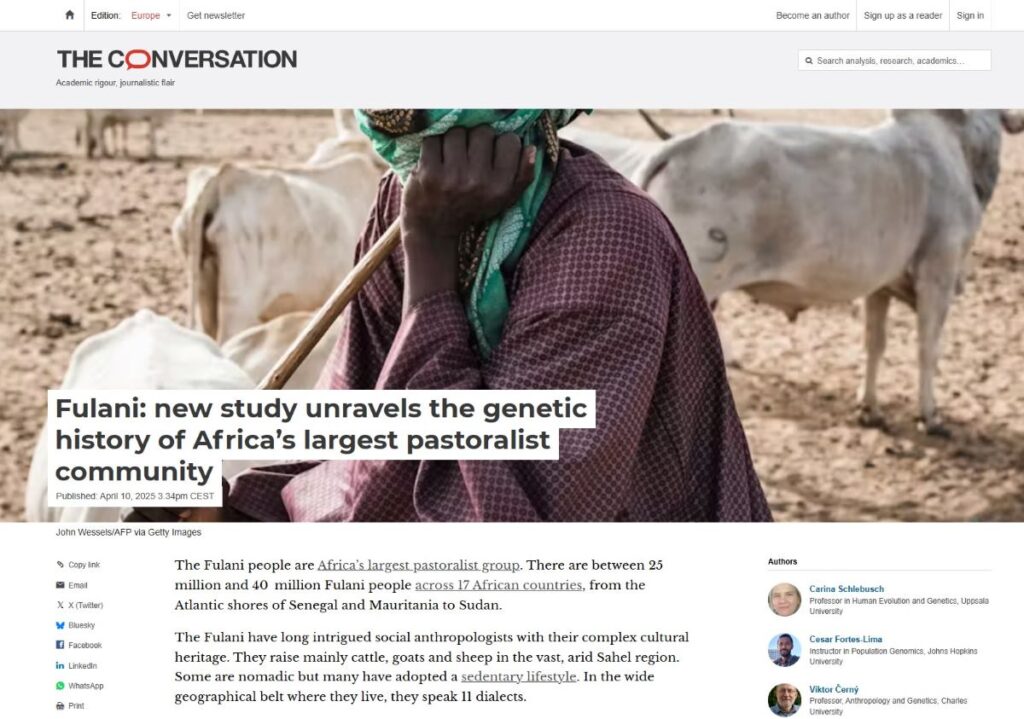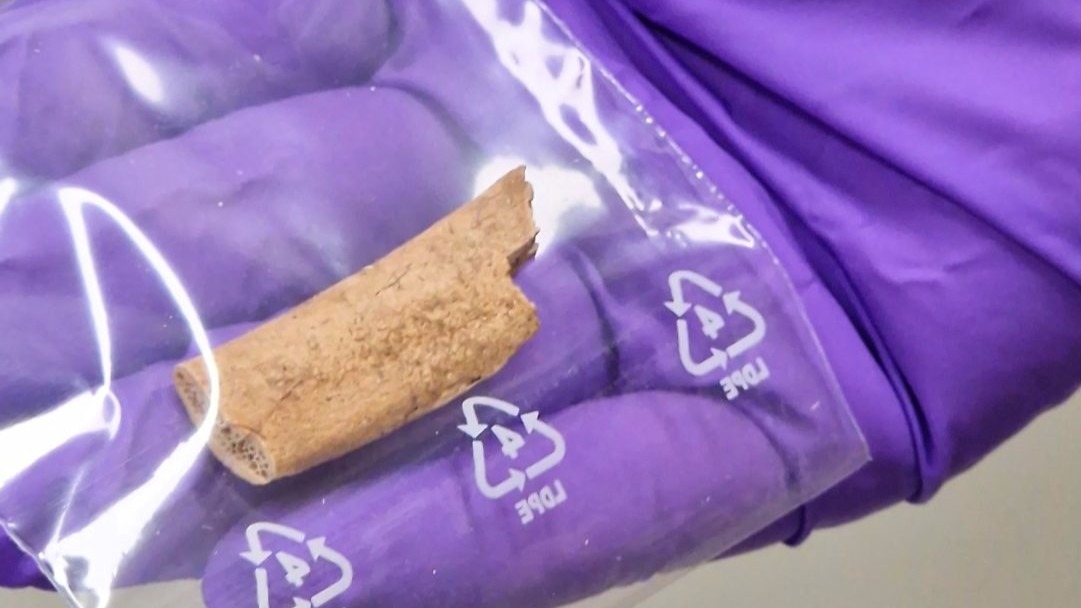

A popular science feature on the recently published Fulani study (see our news item) is available in The Conversation – Africa. Carina Schlebusch and Cesar Fortes-Lima are two of three co-authors.
African populations remain underrepresented in genomic studies. Only about 1.1% of genomic data being used for studies of the links between genes and diseases has come from people of African descent. This means they may miss out on the potential benefits of genomic research, like early detection of disease and drugs designed for specific biological targets.
To address this gap, an international group of researchers specialising in human diversity and evolution conducted over a decade of field research among Fulani nomads throughout the Sahel/savannah belt. The research explored human migration, adaptation and cultural and genetic diversity to uncover the genetic and evolutionary histories of the Fulani.
The Fulani people are Africa’s largest pastoralist group. There are between 25 million and 40 million Fulani people across 17 African countries, from the Atlantic shores of Senegal and Mauritania to Sudan.




